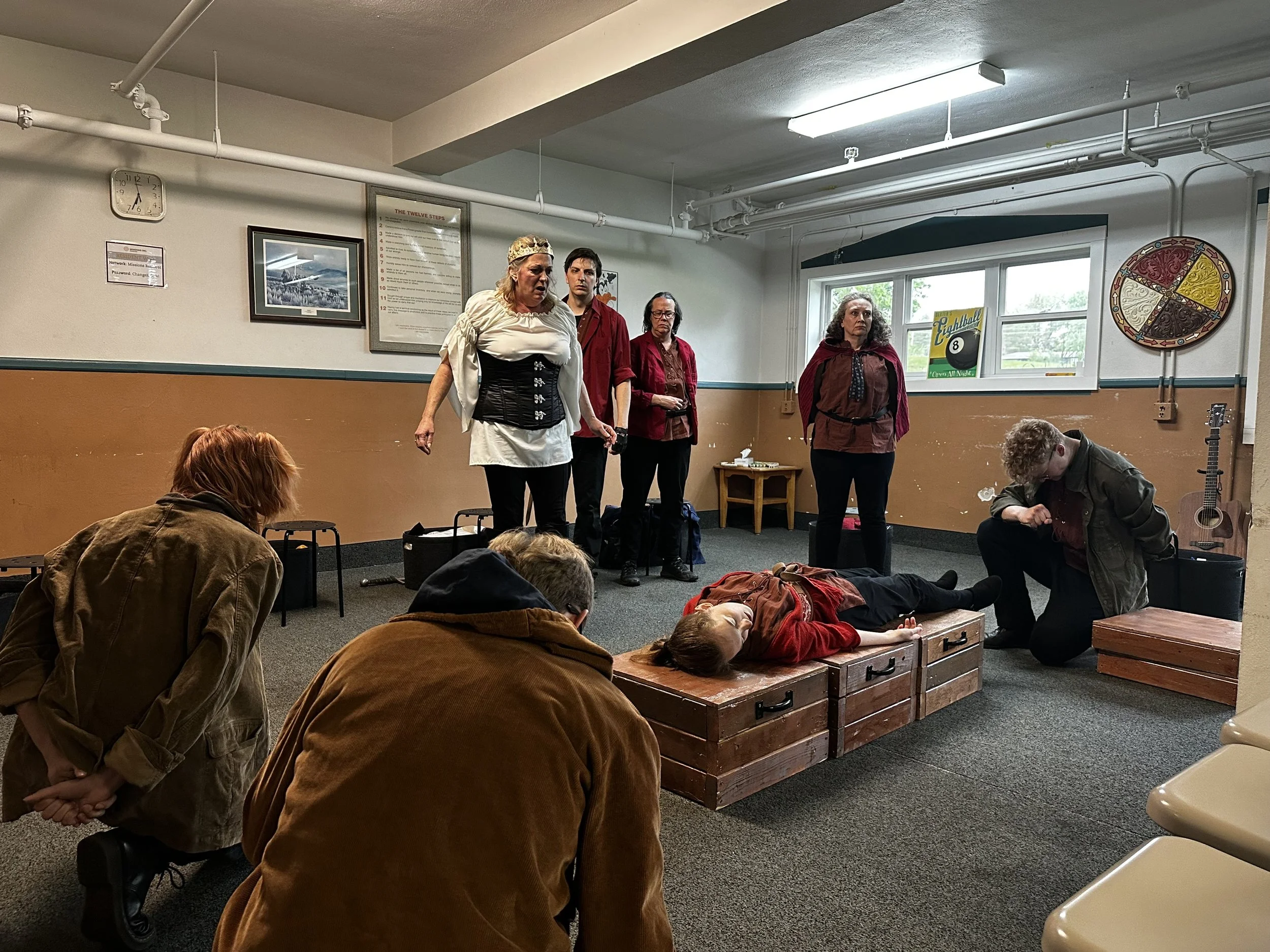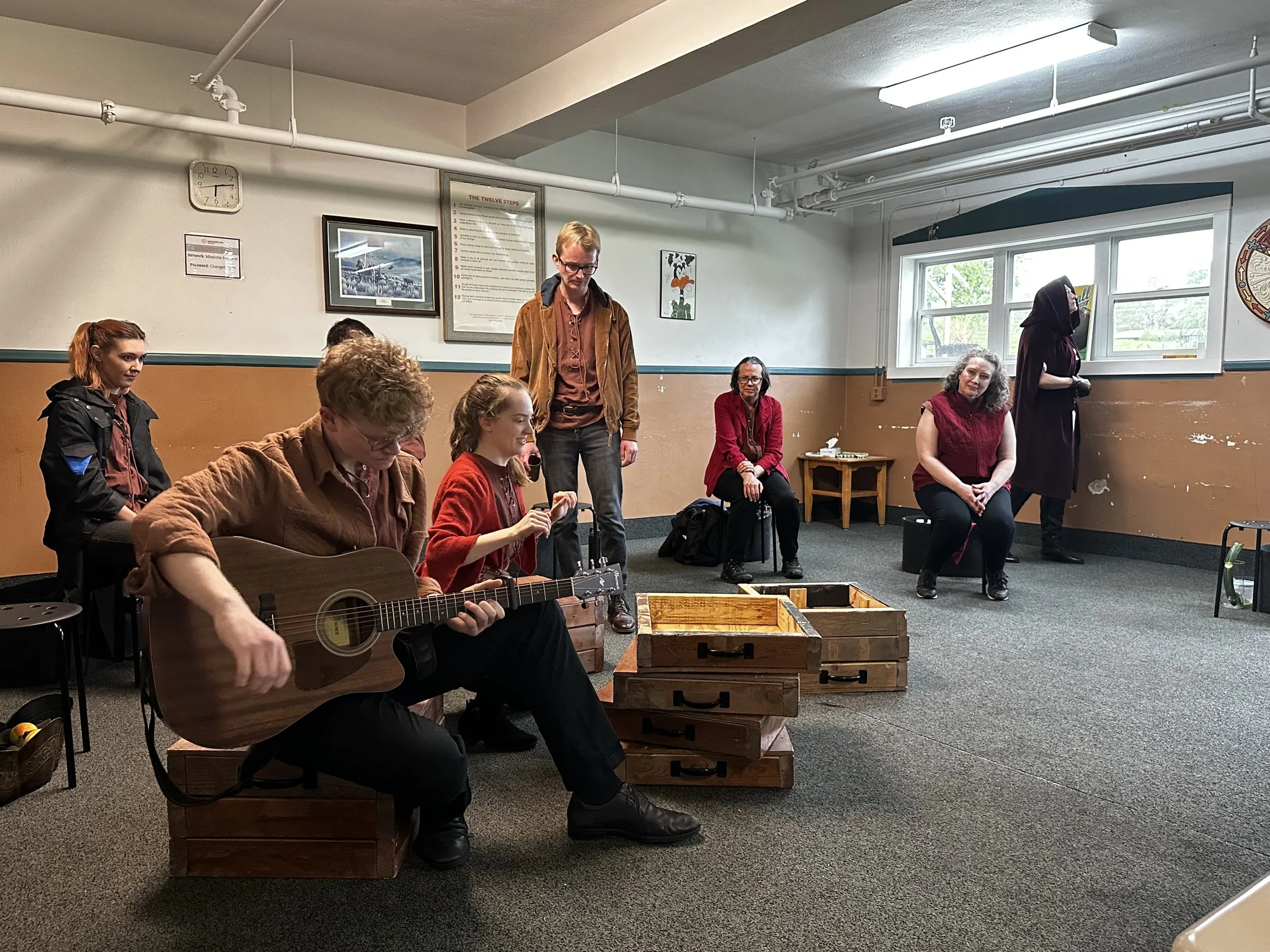Safely Thus: Hope and Healing Through Shakespeare
“To be thus is nothing, but to be safely thus.”
-Macbeth, III.i
Mission:
Safely Thus strives to empower the body and voice through Shakespeare’s words. We bring the arts directly to the disenfranchised to facilitate building community, self-confidence, and self-advocacy.
What We Do:
Safely Thus: Hope and Healing through Shakespeare, is a program designed to improve participants’ self-confidence, relationships, and futures through empowering the body and voice with Shakespeare’s words. Based on Brick by Brick Players’ theory of Theatre of Joy in the Traumatized Body, the course incorporates breath work, play, group discussion, and living Shakespeare’s words.
Frequently Asked Questions
Who is this for?
Everyone! We believe that all bodies carry some trauma and deserve to be empowered. That being said, we are currently focusing our attention on prisons, domestic violence shelters, homeless shelters, and rehab centers in order to bring this art to those most disenfranchised by society and perhaps most in need of this work.
What does this cost?
We are currently seeking funding from state grants and private donors to cover the cost of this program, as we believe this work is vital and that financial barriers should not stop anyone from participating. As such, we offer this program at NO COST to organizations looking to build partnerships and continue this work together. While we offer this program at no cost, any donations greatly benefit our ability to continue this work in the twin cities.
How is the program structured?
We provide four ninety minute classes taught by one of our accredited teaching artists. Over the course of these classes, participants will begin to regain confidence in their own bodies and voices through speaking Shakespeare’s words, building intentional community, discussing trauma and joy, and engaging in self-regulating and self-empowering breath work.
What does this program cover?
The four sessions of the program as written are as follows.
Session One: Finding Power with Henry V
Participants will begin to explore power by embodying the idea of “king,” and will engage in ensemble and community building through Shakespeare’s words.
Session Two: Exploring Trauma with Winter’s Tale
Participants will discuss how we carry trauma in our bodies, and engage in somatic work to regulate and empower the nervous system.
Session Three: Clowning Around with Twelfth Night
Participants will empower their voices and bodies through clowning games and joyful scenework.
Session Four: Embracing Joy with Twelfth Night
Using the tools that we have acquired, participants will embody and play with longer sessions of Shakespeare’s texts, and will learn how to apply the work of these sessions to their lives moving forward.
Is this program customizable?
Yes! We have a tested four-session lesson plan that we like to start with, but it can easily be adapted to the needs of each group. We can also create alternative lesson plans to address specific topics with your group. Examples might include examining racial bias with Othello, addressing consent with Cymbeline, standing up to oppressive systems with Henry IV, or finding joy through music with As You Like It. During booking, we’ll ask you what your clients most need, and then emphasize those themes in our teaching. Then, if a new lesson is requested, we can create one independently or meet in community with a representative from your organization to create one collaboratively.
What is Theatre of Joy in the Traumatized Body?
Theatre of Joy in the Traumatized Body is theatre that sees those that have been traumatized not as victims, but as full humans capable and deserving of immense and revolutionary joy. We define trauma as any experience, big or small, that convinces a person they need to shrink or lessen themselves to be safe and accepted.
Do I have to perform?
No! This is an experiential course with no public performance element.
Do participants need to be confident reading Shakespeare’s words?
No! We teach through a process called feeding in, where teaching artists will whisper, or “feed” Shakespeare’s words to participants, who will then perform them at full volume. This is a method Shakespeare used with his own actors, and we find it leaves participants more free to embody texts by removing the literacy barrier that Shakespeare’s words on a page may present.
How do I sign up?
Please contact our Associate Artistic Director Logan McCarty at loganmccarty95@gmail.com with inquiries.

